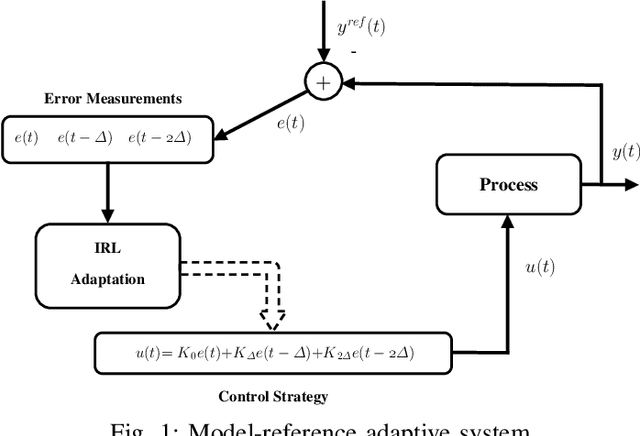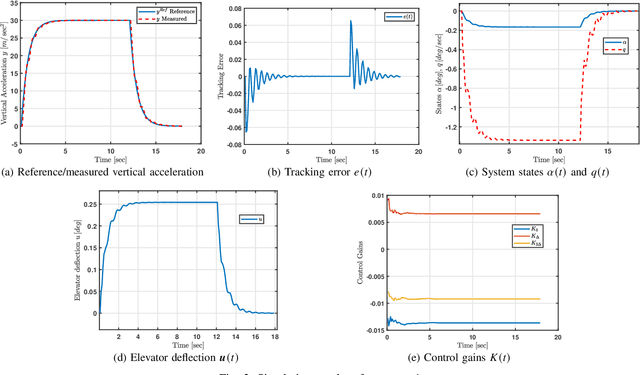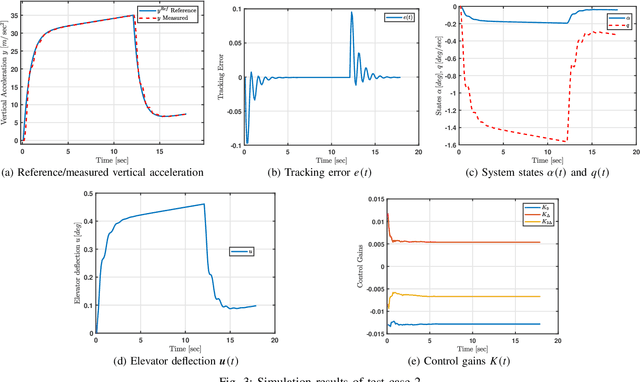A Data-Driven Model-Reference Adaptive Control Approach Based on Reinforcement Learning
Paper and Code
Mar 17, 2023


Model-reference adaptive systems refer to a consortium of techniques that guide plants to track desired reference trajectories. Approaches based on theories like Lyapunov, sliding surfaces, and backstepping are typically employed to advise adaptive control strategies. The resulting solutions are often challenged by the complexity of the reference model and those of the derived control strategies. Additionally, the explicit dependence of the control strategies on the process dynamics and reference dynamical models may contribute in degrading their efficiency in the face of uncertain or unknown dynamics. A model-reference adaptive solution is developed here for autonomous systems where it solves the Hamilton-Jacobi-Bellman equation of an error-based structure. The proposed approach describes the process with an integral temporal difference equation and solves it using an integral reinforcement learning mechanism. This is done in real-time without knowing or employing the dynamics of either the process or reference model in the control strategies. A class of aircraft is adopted to validate the proposed technique.
 Add to Chrome
Add to Chrome Add to Firefox
Add to Firefox Add to Edge
Add to Edge